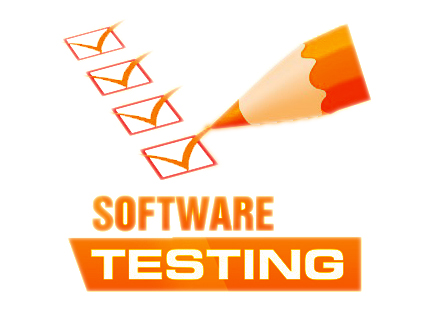Search posts by keywords:
Filter posts by author:
Related Reports
Related NEAT Reports
Other blog posts
posted on Jan 30, 2017 by NelsonHall Analyst

Accenture recently held a two-day symposium for the clients of its testing services to look at how testing services are changing, showcase its latest offerings, and allow successful engagements to discuss the keys to their success and lessons learned.
Testing services are at a crossroads, as agile and DevOps have increased expectations around speed of delivery and driven convergence across the software development lifecycle. (NelsonHall’s Dominique Raviart has written and spoken about this on numerous occasions). This is necessitating a pivot in Accenture’s focus from testing to a more holistic view of quality.
The offerings and capabilities presented by Accenture indicated its views on the future of testing and IT services in general: a focus on user experience (UX) and highly automated delivery, which is necessitating changes in the capabilities of its personnel.
Expanding Universe of Testing Factors
Rather than being isolated as a single component of the SDLC, Accenture sees testing permeate across the lifecycle. That includes factoring quality as part of a focus on design thinking and UX; UX should now be a core focus of any IT initiative, internal and external to an organization. This shift has a direct impact on quality, with Accenture advocating an increased need to focus on the following key attributes:
- Experience: ensure seamless experiences regardless of channel and reflecting the voice of the customer
- Performance: ensure predictable behavior and gather user data in real-time
- Insights: optimize applications across the breadth of channels and devices for backward compatibility and future proofing
- Security: balance ease of use and privacy while reducing vulnerabilities.
Increasing Automation
Automation has become core to delivering test execution but its scope is now expanding, including applying AI concepts in testing as well as looking at how to actually test AI capabilities themselves. The use of AI and cognitive capabilities in testing can range from the management and generation of test data to the rationalization of test cases to optimize coverage.
In addition to exploring how AI can be applied, Accenture is rolling out platforms to drive automation in the delivery of testing services. These platforms include:
- Touchless Testing Platform: to manage the test process. Beyond running scripted, rule-based tests, it also orchestrates the testing process, incorporates analytics to optimize test coverage, and provides cognitive bots to assist the testing team and visualization tools. The platform includes technologies from Splunk, Saffron, Jenkins, GIT, HP ALM, Selenium and Tableau
- Omni-channel Testing Platform: for testing digital solutions across a breadth of channels, including reporting and analytics visualization capabilities. This platform includes capabilities from Perfecto Mobile, Applause for crowdsourced testing, and SOASTA for performance monitoring.
Accenture’s broad machine learning, automation and AI platform, myWizard, also offers a Testing Expert capability to provide analytics and cognitive capabilities.
These platforms are still in their infancy and the number of use cases of each will increase. Their use requires Accenture and other IT service vendors to revisit their personnel approach for delivering testing, from headcount to pyramid, to location, to skills.
Changing Workforce Needs
While these platforms are intended to reduce the cost of quality as well as improve the effectiveness of quality activities, they raise a bigger question regarding their impact on the broad personnel base performing much of these functions today.
Jeff Wilkinson, Accenture Test Lead for North America, says that while ~80% of the testing completed today is done manually, he expects this to have dropped to under 60% within three years. And not only will the overall quality organization shrink with this reduced workload, the role of the quality professional will also need to evolve.
One of Accenture’s clients, a large U.S.-based financial institution, has already begun evolving its delivery workforce to focus on quality engineering rather than on testing. This approach requires permeating quality concepts across the entire development lifecycle and necessitates resources to possess domain, analytics, data management, and tools knowledge.
This client team has re-organized its quality resources to a hybrid team of dedicated lines of business (LoBs) resources to embed these skills directly with developers and business analysts, as well as creating a centralized automation team acting across LoBs.
Another resource challenge is driven by the rise in devices employed by end-users. In part, this is being addressed by the omni-channel platform referenced above; however, no platform can address all permeations of devices. This has led to a rise in the need for crowdsourced testing, which Accenture predicts will be used on ~80% of digital engagements by 2018. This is a bold prediction; while it may be a little overstated, the rapid growth taking place in crowdsourced testing is undeniable. Crowdsourced testing from organizations such as Applause provide access to approved personnel available to test on-demand, who bring experience of a wide variety of devices and platforms helping identify specific defects without a long-term commitment by Accenture.
With examples from early adopters, as well as the maturing of its automation platforms, Accenture has begun to modify its delivery models, including for new opportunities, with modified organizations and skillsets. Accenture is also planning for increased productivity over the life of an arrangement, with these improvements spanning both direct testing efforts as well as upstream or downstream efforts such as requirements definition and deployment.
Next Steps
Testing models have evolved considerably in recent years, and Accenture sees further changes are on the horizon. Greater integration of testing with other software lifecycle activities, such as agile development teams, is still growing. Accenture is still offering Testing CoEs as a stand-alone service, though tighter integration into agile teams is expected to expand, as long as segregation of duties concerns can be clearly addressed. The increased use of cloud environments for testing workloads will also drive closer coordination between application testers and infrastructure providers.
